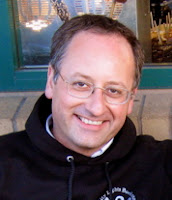Fr. Antonio Spadaro, a sharp Italian Jesuit I met while in Rome, recently wrote an article in a Vatican-backed magazine that has generated a lot of buzz. In his La Civilta Cattolica piece, Spadaro praised the approach of computer hackers, seeing in their work a participation in God’s own work of creation.
The article, written in Italian but highlighted at The Economist, has produced the expected controversy. Anytime people hear the word “hacker” red flags immediately go up. Most people picture cyber crooks who steal bank information or take down major websites. But when Spadaro refers to “hacking”, he means the building and tinkering of code, particularly the creation of open-source software.
Spadaro suggests an interesting link between this type of hacking and Catholic social teaching.
The hacker ethic forged on America’s west coast in the 1970s and 1980s was playful, open to sharing, and ready to challenge models of proprietary control, competition and even private property. Hackers were the origin of the “open source” movement which creates and distributes software that is free in two senses: it costs nothing and its underlying code can be modified by anyone to fit their needs.
“In a world devoted to the logic of profit,” wrote Fr. Spadaro, hackers and Christians have “much to give each other” as they promote a more positive vision of work, sharing and creativity.
Read more from Spadaro’s article here.
As we move further into the new media age, we need to reflect theologically on the Internet and its effects. We need to develop a theology of how God is present in this new culture and how he’s moving within it.
That’s one thing we tried to do in The Church and New Media. But the Church needs much more direction. Priests, especially, need to be trained in addressing pastoral problems unique to this digital world. Hacking is just one of many issues that will need more focus.


